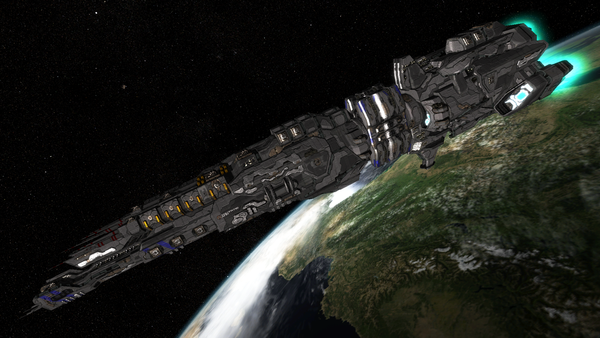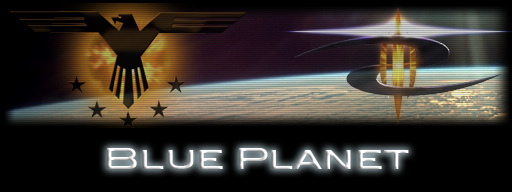Difference between revisions of "UED Solaris"
m (→Gallery) |
m (→Gallery: fixed link) |
||
| Line 68: | Line 68: | ||
==Gallery== | ==Gallery== | ||
<gallery> | <gallery> | ||
| − | Image: Solarisdd.jpg | The [[UED Solaris|UED ''Solaris'']], flagship of the First Fleet. | + | Image: Solarisdd.jpg | The [[UED Solaris (WiH)|UED ''Solaris'']], flagship of the First Fleet. |
Image: ToutatisDD.png | The [[UED Toutatis|UED ''Toutatis'']], flagship of the Jovian Rim Fleet. | Image: ToutatisDD.png | The [[UED Toutatis|UED ''Toutatis'']], flagship of the Jovian Rim Fleet. | ||
Image: Erisdd.png | The [[UED Eris|UED ''Eris'']], flagship of Second Fleet Mars. | Image: Erisdd.png | The [[UED Eris|UED ''Eris'']], flagship of Second Fleet Mars. | ||
Revision as of 15:17, 27 October 2010
| The following information has not been confirmed by Volition and is therefore not canon for the FreeSpace universe. |
|---|
- This article is about the ship class. For the lead ship of the class, see UED Solaris (WiH)
The be-all and end-all of the UEF, the UED Solaris is the sole destroyer and carrier class of the UEF in Blue Planet, as well as the largest and most powerful ship class in the entire Federation. The UEF has three of these behemoths in service, and each of them serve as mobile fortresses and a base of operations for the Federation's three fleets and their commanding officers.
The firepower that the Solaris wields is immense: of its 67 turrets, twelve of them fire anti-warship torpedoes that can threaten even the GTVA's most powerful warships. Its anti-warship and anti-fighter armament is spread out evenly across the entire vessel, virtually eliminating any and all weak spots on the ship's frame.
The fact that the Federation—and to some extent, the Ubuntu Council of Elders—only has three active Solaris destroyers, however, means that Solaris-class destroyers are rarely seen on the front lines of battle despite their offensive and defensive capabilities. Instead, standard UEF doctrine has it that each Solaris destroyer deploys its complement of spacecraft for virtually all operations, while the destroyer in question is kept in a holding position around the planet or installation it is stationed at. The deployment of a Solaris destroyer in battle is often only used as a last resort, when it has no additional spacecraft to assist, or if the deployment of a smaller space-faring warship such as a Narayana-class frigate is infeasible or impossible. In addition, because each Solaris destroyer holds nearly an entire fleet of spacecraft, the destruction of any of these vessels will deal a crippling blow to the military strength and morale of the UEF and, in turn, the Council.
Contents
Description:

|
|---|
| The UED Solaris |
Blue Planet: War in Heaven Tech Description
Prior to the outbreak of the UEF-GTVA war, the Solaris class Destroyers were the most controversial pieces of military hardware in use by the Federation. They represented a massive investment of resources and manpower that, according to critics, was fundamentally unnecessary. Designed by an ad-hoc committee of the Federation's best engineering and tactical thinkers and built at Mars' Bradbury Fleet Yards, these enormous warships seemed like answers to a nonexistent problem.
There are currently 3 ships of this class in service: the Solaris under Admiral Byrne, the Eris under Admiral Netreba, and the Toutatis under Admiral Calder. They each serve as both flagships and primary strategic deterrents for their respective fleets. The Solaris class' primary firepower is delivered via 12 Hwacha Mk 2 missile launchers, each capable of firing up to 4 missiles before a reload cycle. Secondary armament is comprised of fast-firing mass drivers designed to kill enemy turrets, supplemented by a comprehensive suite of point defense and flak guns.
They also carry a sizable fighter complement, befitting their role as carriers. While the Solaris destroyers themselves have barely seen combat in the war, their impact on the strategic situation is enormous, and the actions of their fighter wings are critical in the Federation's defensive efforts. Each Solaris serves as a single-handed 'fleet in being', deterring a crushing GTVA assault.
Developer Notes
This ship is derived from Esarai's Arashi concept, which was in turn inspired by the UEFg Karuna and FD Vexor. However, there are several differences between it and the first concept. The original Arashi design was flipped to provide a stronger, more grounded appearance, the turret layout was built to custom order, and the ship's maps and animations were produced by a collaborative effort between Esarai, The E, Herra Tohtori, and Darius. This model is also somewhat infamous for breaking FSO at a few points, as its original iteration was too detailed for the pof model file format.
Credits
- Concept based on UEFg Karuna and FD Vexor, both by Steve-O
- Original concept and model by Esarai
- Ship textures and animation by Esarai, Herra Tohtori, The E and Darius
Name Origin
Named for the classic science fiction novel by Stanislaw Lem, which was notable for portraying truly unknowable aliens.
Performance:
Statistics
| Name | UED Solaris | |
| Type | Destroyer | |
| Manufacturer | Bradbury Fleet Yards | |
| Max Velocity | 15 ms-1 | |
| Hitpoints | 180 000 pts | |
| Length | 3496 m | |
| Turrets | 67 turrets | |
| Fighter Complement | 16 squadrons (192 spacecraft) |
Armaments
| BP: WiH | |
| Turret Type | Amount |
| Apocalypse | 12 |
| Arashi Turret | 16 |
| Burst Flak | 16 |
| Point Defense Turret | 20 |
Gallery
The UED Solaris, flagship of the First Fleet.
The UED Toutatis, flagship of the Jovian Rim Fleet.
The UED Eris, flagship of Second Fleet Mars.
Veteran Comments

